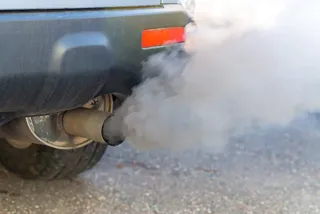Concerns surrounding Clean Air Zones (CAZs) have been highlighted as two of the top three issues that car and van fleets believe they will face before 2026.
Findings from Arval Mobility Observatory’s 2021 Barometer show that the top most common answers to the question, “What are the main challenges facing fleets in the next five years?”, were firstly the introduction of stricter CAZs (35%), followed by increased vehicle taxation (34%) and then the creation of more CAZs (30%).
After lockdown, poor road infrastructure causing congestion (30%) dropped to fourth position, followed by the impact of flexible working (22%), and implementing full mobility solutions (14%) came last.
Shaun Sadlier, head of Arval Mobility Observatory in the UK, said: “The responses indicate that CAZs are seen as challenging for fleet managers well into the medium-term and that they’re worried about both their proliferation and the rules becoming tougher.
“However, many fleets that Arval partner with have been able to meet CAZ requirements with relatively small changes to their operations. Even for those which are affected, the worry is likely to be transitional as older vehicles are replaced. By the end of this decade, the vast majority of company cars, and probably vans too, will be electrified, which will help to solve the emissions zones problem automatically."
Environmental groups are pressuring the Government to speed up the implementation of CAZs across the UK. Numerous cities had announced plans to introduce CAZs, but in April last year the Government announced their introduction would be delayed until after the UK overcomes the Covid-19 pandemic.
“Similarly, it is interesting that taxation is seen as a challenge. Again, the emergence of EVs of all kinds will potentially massively reduce tax liabilities for fleets over the next few years.”
Sadlier added that the most striking finding in the research was the sharp reduction in fleets concerned about congestion: “This is now at 30% compared to 43% in last year’s Arval Mobility Observatory research – a fall almost certainly prompted by reduced road use during the pandemic and which perhaps indicates that fleet managers expect traffic levels to remain lower into the future.
“Another pandemic trend mentioned is the emergence of more flexible working. Our experience so far is that very few businesses are looking to move out of company cars as a result of increased home working. While almost everyone seems to believe that fewer miles will be driven in the future, the general view is that those miles remain essential for business and personal life.”





















Login to comment
Comments
No comments have been made yet.